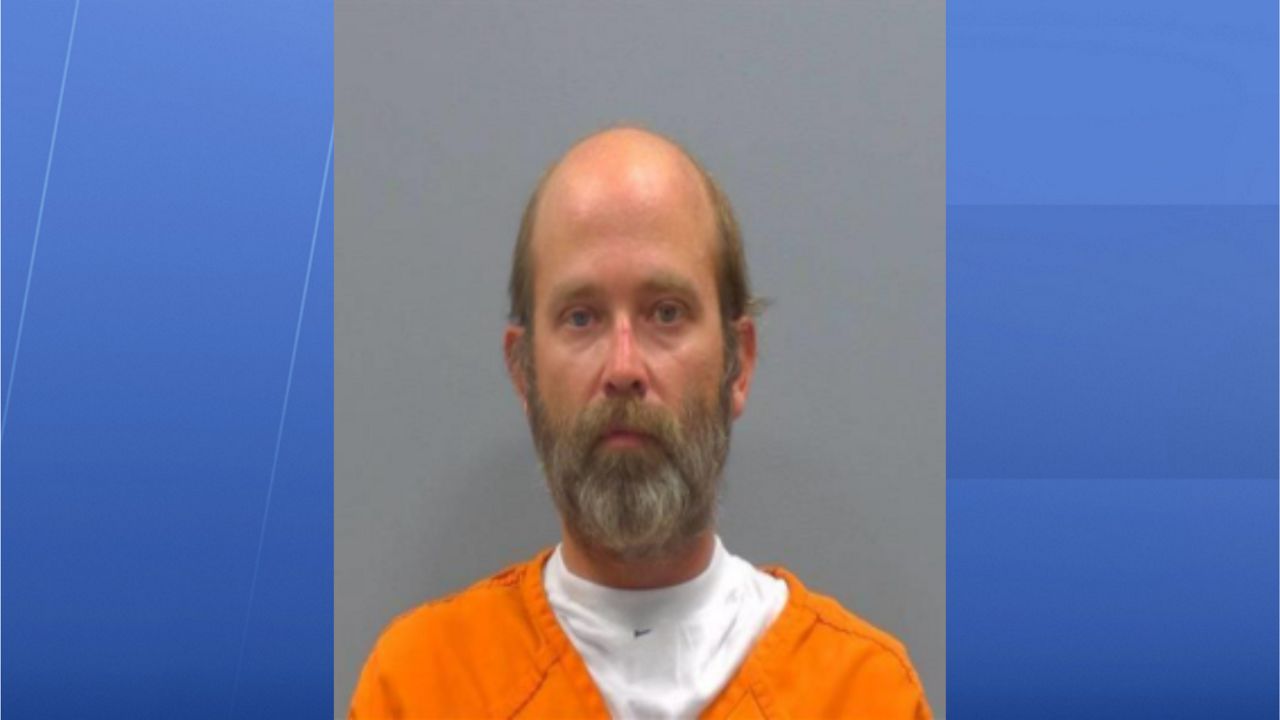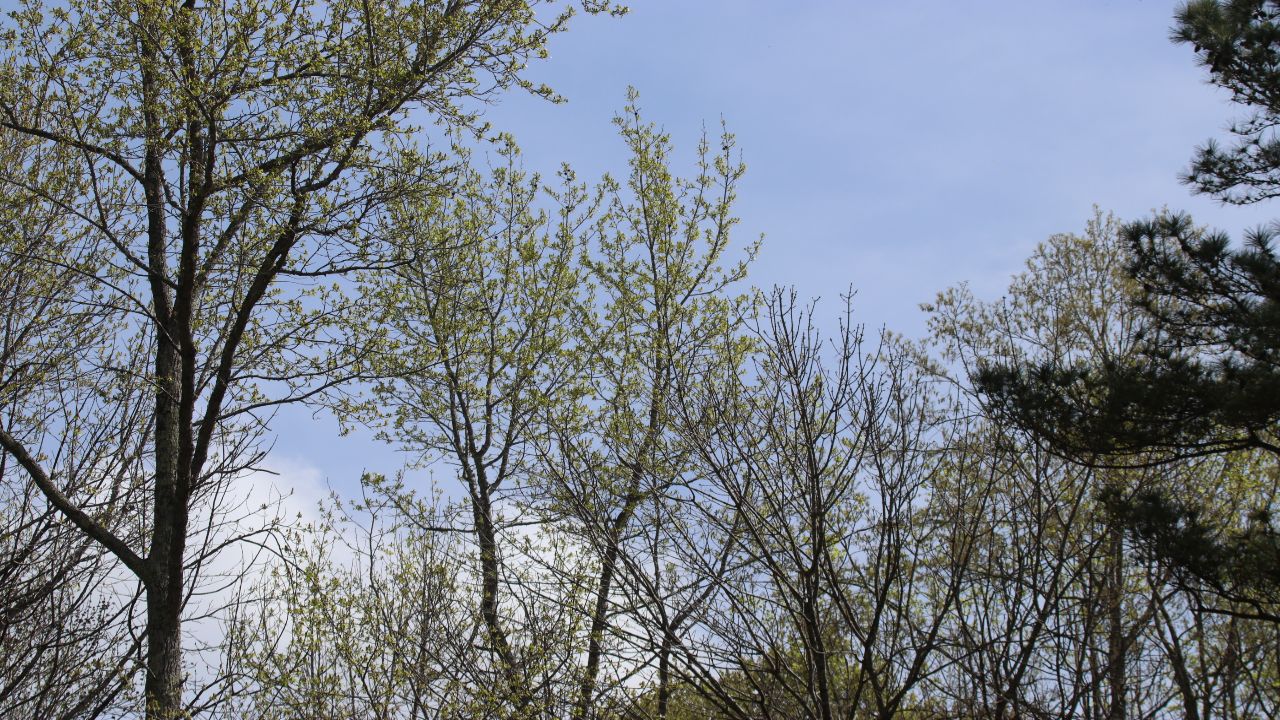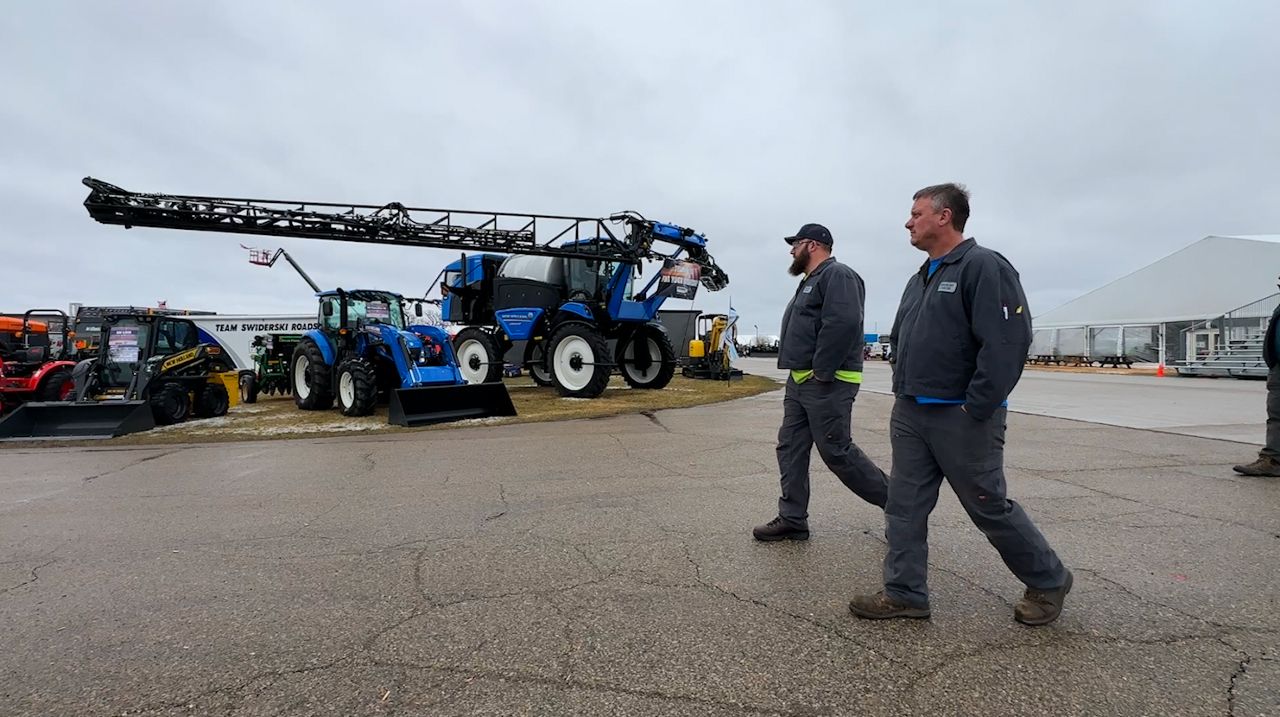ASHWAUBENON, Wis. — High school students from Notre Dame Academy left their classroom recently for Dutchman Creek in Ashwaubenon.
The students represented one of eleven schools participating in the Lower Fox River Watershed Monitoring Program, coordinated by UW-Green Bay, which began in 2003.
Senior Lachlan Chambers enjoyed the experience of gathering scientific data.
“It’s pretty interesting, and I’d say it’s a lot easier to learn hands-on than learning it from a textbook or writing down notes," said Chambers. "It’s good to get hands-on with it.”
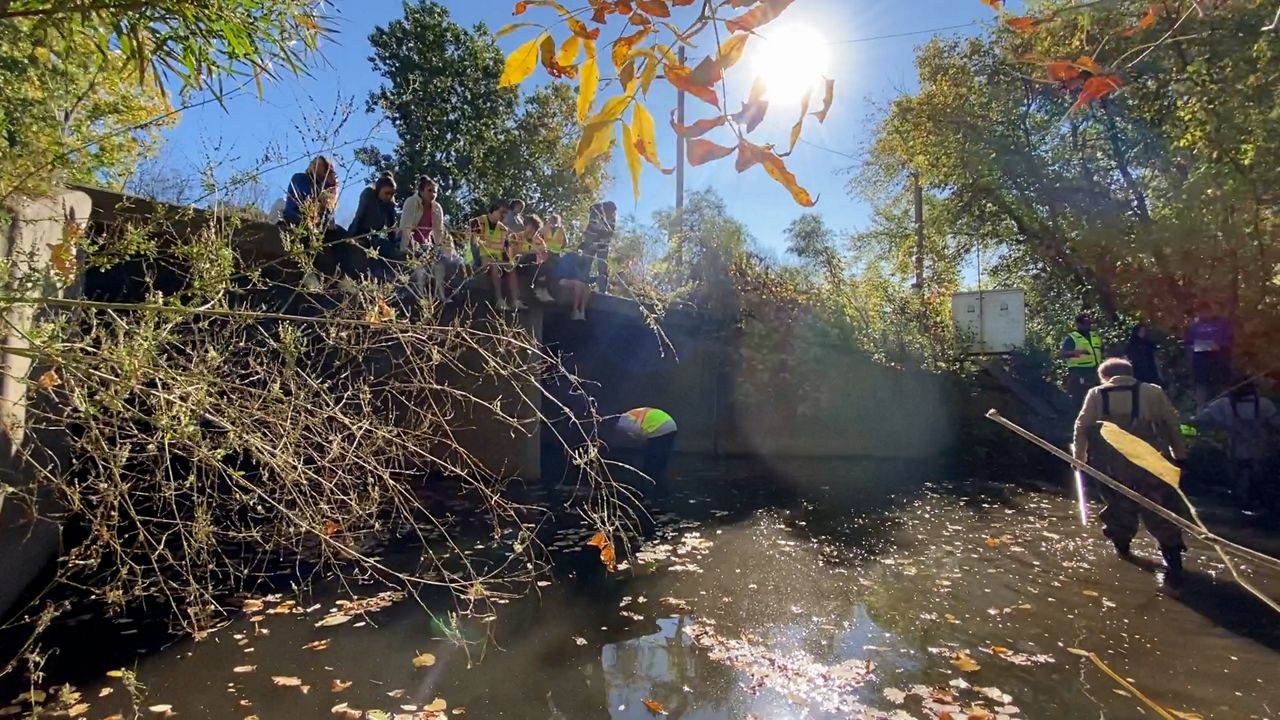
Chambers and classmate Leo Dart took water clarity readings. They both belong to the environmental club at Notre Dame Academy and said environmental issues are important to them.
“Later today we’re going back to the lab and testing all the water things. I’m excited for that, and we have a report due on this," said Dart.
Wastewater treatment provider NEW water collects and treats 41 million gallons of water per day for the Green Bay region. Watershed Programs Manager, Erin Houghton, said the data collected by students is valuable for the community.
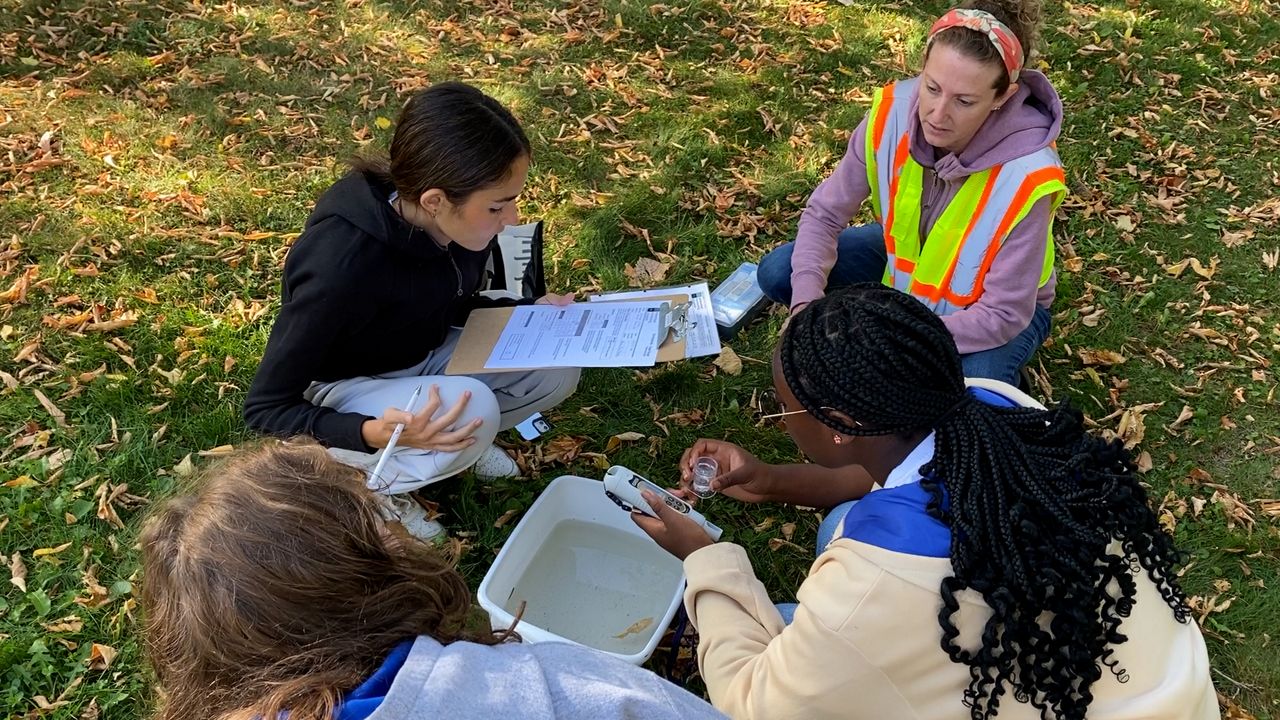
“The work that the high school students are doing today and with the volunteer monitoring program really does help watershed programs like NEW waters to really understand the trends in water quality in our region," explained Houghton. "We’re very interested in understanding the excess nutrients and sediment that find their way into our waterways and cause water quality issues both in the streams, rivers and downstream in the lower (Green) bay.”
Results gathered from Dutchman Creek, and other parts of the Lower Fox River Watershed, are accessible to the public via a UW-Green Bay website.
“Having this experiment for the community really adds a lot to it. It’s a nice feeling," said Dart.
Notre Dame Academy teacher Molly Mattke said her students will perform an internal assessment and develop a research question related to water quality.
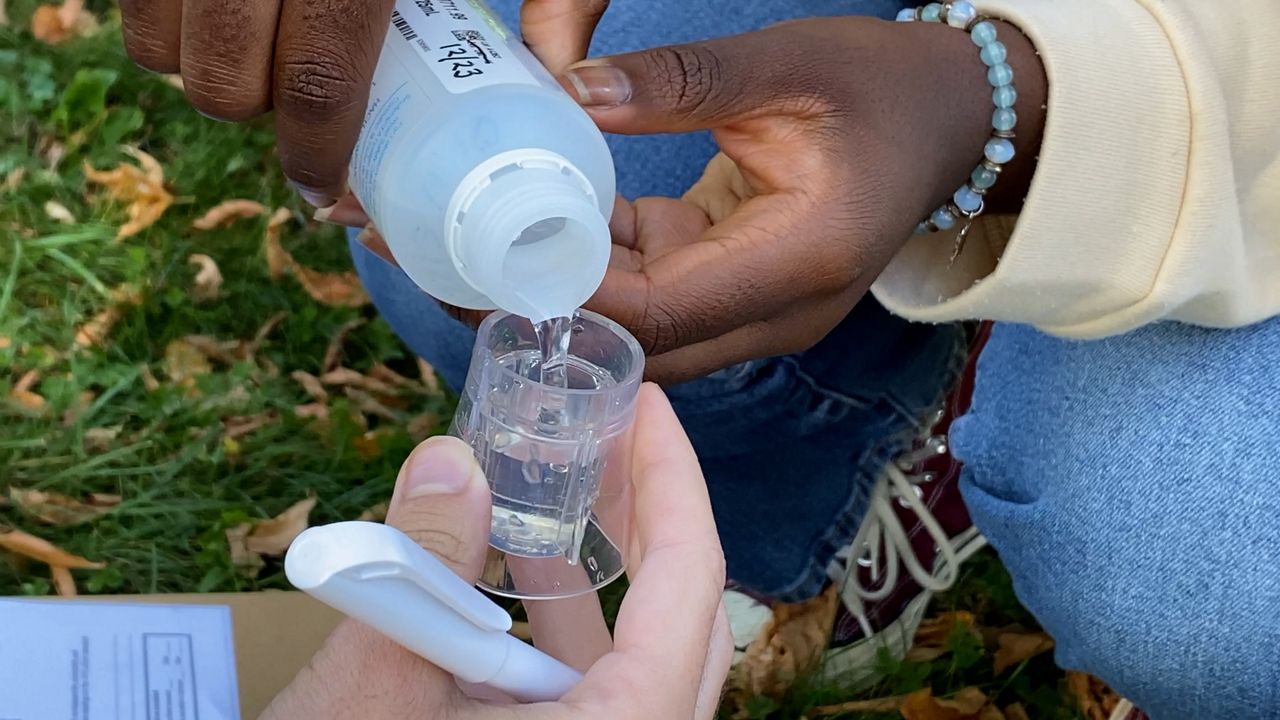
"Even if they don’t live by this creek specifically, they live in this watershed. They have access to different rivers and streams in this area. They can apply their learning from class to what they’re doing today," said Mattke.
Houghton looked on while students donned waders to collect water samples and helped others read and chart their results.
“You can learn about it in the classroom, but once you have that tactile interaction with it, you care a little bit more," said Houghton. "You can't un-know something that you've seen and learned. Once you have a connection to it, you tend to care a lot more about it. I know that's definitely driven my passion and driven me in my career. And so, I can only hope for that for the next generation.”
With twenty years of research collected so far, the students gained valuable experience and helped their community further understand the local water supply.








